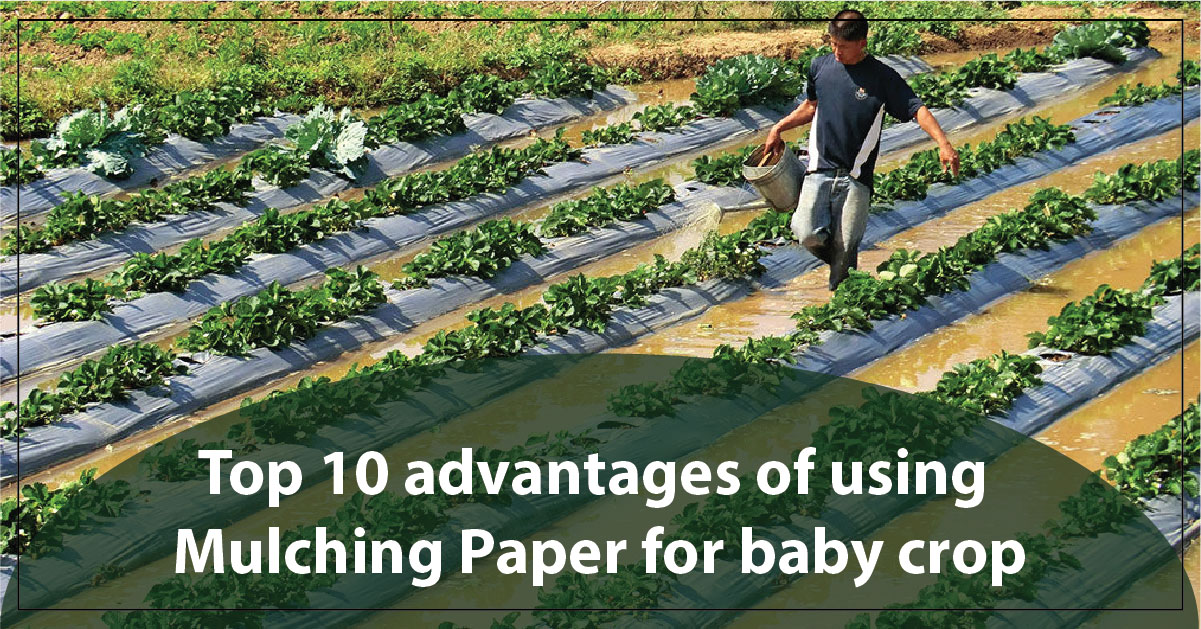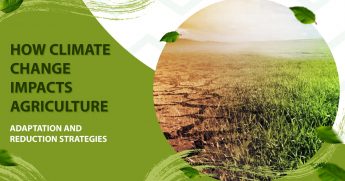Mulching is a process of covering the soil with organic matter to improve plant growth and development.
Mulching is the process of forming a protective layer around a plant. Mulch application is a time-honoured and effective technique.It benefits plant health by creating a microclimate around the root zone of the plant.
Mulching is widely regarded as one of the most effective ways for a farmer to keep his farm healthy. Mulching, in essence, creates a microclimate in which the plant can grow and perform better in an environment with regulated moisture content, appropriate temperature, humidity, carbon dioxide, and proper microbial activity.
Top 10 Advantages of Mulching
Mulching has numerous benefits in agriculture. The following are the details:
- Water conversion – It prevents direct evaporation of soil water, reducing the amount of water required by crops.
- Weed control –
This is the major and important reason, many farmers using mulching techniques. It helps to suppress weed growth. - Soil moisture – It keeps water in the soil from evaporating and keeps soil moist for a long time, as well as maintaining a constant humidity level in the plant root zone.
- Root development- It helps the plant’s white root development on the soil’s upper surface by creating a microclimate near the root zone.
- Plant, flower, and fruit substrate – Mulching films help improve flower and fruit quality by preventing direct contact between soil and flower, fruit, and other plant parts.
- Pest control – Because the mulching film reflects light, pests such as aphids, thrips, and leafminers are much easier to manage. It also works well against nematodes. Yellow mulching films, on the other hand, attract whiteflies and help to control their growth.
- Acts as an insulator – In the cold days, the mulching film acts as a heat and cold insulator, preventing soil from speedily freezing, and in the hot days, it helps control soil temperature.
- Soil erosion – Mulching acts as a barrier between the soil and the raindrop, slowing the erosion process.
- Level of salinity –It has been observed that where mulch-film is used, the salinity level around the dripper is lower.
- Mulch can help with fertiliser placement and reduce plant nutrient loss due to leaching.
Other benefits of Mulching
Water is completely impervious to it. It prevents moisture from evaporating directly from the soil, limiting water losses and conserving moisture. It prevents the rise of water containing salts by suppressing evaporation. Mulches can also act as a barrier against pathogens in the soil. Annual weeds are prevented from germinating by opaque mulches. Certain insects will be deterred by reflective mulches. Mulches maintain a warm temperature throughout the night, allowing seeds to germinate quickly and young plants to establish a strong root system quickly. Synthetic mulches are important in the process of soil solarisation. Mulches produce a microclimatic underside of the sheet that is higher in carbon dioxide due to microbial activity.
Conclusion
Leaf, straw, dead leaves and compost have been used by our ancestors. Recently we have developed synthetic materials has altered the methods and benefits of mulching. Plastic mulches are completely resistant to water; so prevents direct evaporation of moisture from the soil and thus restricts the water losses and soil erosion over the superficial. In such way it plays active role in water conservation. The prevention of evaporation also has a harmonizing effect; it stops the rise of water containing salt. Padcorp is providing the best quality mulching paper for protecting crops.



